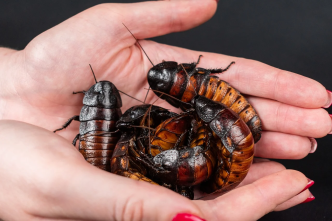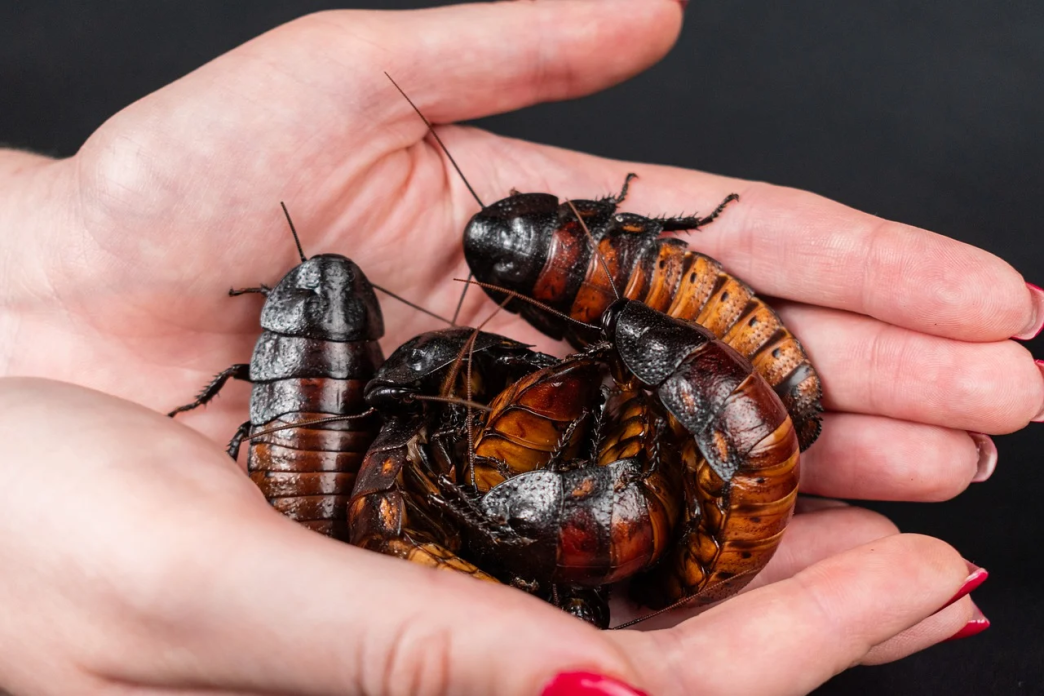Have you ever considered what pests might be doing behind the scenes in your home? Sure, they’re small and often unseen, but pests like cockroaches, rodents, and mosquitoes bring more than just annoyance. They can actually impact our health in ways that are often overlooked. Pest infestations don’t just compromise the aesthetics of your space; they can introduce health risks, trigger allergies, and even increase stress.
Allergies and Asthma: A Hidden Trigger
If you or someone in your household has allergies or asthma, pests like dust mites, cockroaches, and even rodents could be worsening the symptoms. Cockroach droppings, saliva, and shed skins release allergenic proteins that trigger reactions in sensitive people. These particles become airborne and are easily inhaled, causing or worsening asthma attacks and respiratory issues. Rodent urine and droppings are another common source of allergens, and they tend to linger in hidden places, meaning they’re difficult to clean up entirely. Regular exposure, even if indirect, can lead to persistent allergic reactions. So, if you notice any signs of pests, getting in touch with an expert for pest control Perth as soon as possible is a must.
Disease Transmission: More Than Just a Nuisance
It’s not just about itching or sneezing; pests are notorious for spreading diseases. Let’s look at a few examples that might surprise you:
- Mosquitoes – Mosquitoes are known for spreading malaria, dengue fever, Zika virus, and West Nile virus, depending on where you live. Their bite transfers pathogens directly into your bloodstream, making them one of the most dangerous animals globally in terms of disease transmission.
- Rodents – Mice and rats carry diseases like leptospirosis, hantavirus, and even plague. Their droppings, saliva, and urine can contaminate surfaces, food, and water, exposing people to various health risks.
- Cockroaches – These resilient critters can pick up bacteria like salmonella and E. coli from sewage and garbage, spreading them around your home and potentially onto food preparation areas.
- Ticks – Often brought in by pets or found in grassy areas, ticks carry Lyme disease and other bacterial infections, which can cause long-term health issues if left untreated.
- Fleas – Known for transmitting diseases like typhus, fleas are more than a nuisance, especially if you have pets at home. They can spread quickly and often go unnoticed until the infestation becomes significant.
Each of these pests brings a unique set of health concerns, and their small size means they often infiltrate spaces without notice. It’s easy to overlook their presence, but the risks they carry are far from minor.
Mental Health: The Overlooked Impact
Living with pests can be stressful. The sense of intrusion and the frustration of trying to control an infestation can affect your mental health more than you might realise. Here’s how:
- Increased Anxiety – The thought of bugs or rodents lurking in your home can cause constant unease, especially at night. Some people even develop specific phobias related to pests, amplifying stress.
- Sleep Disturbances – With pests scurrying about, it’s no wonder many people experience difficulty sleeping. Hearing a mouse scratching in the walls or a cockroach rustling around in the kitchen can lead to restlessness, resulting in poorer sleep quality.
- Hygiene and Cleanliness Concerns – A pest-free home feels clean, safe, and inviting. The presence of pests, however, can leave people feeling uncomfortable in their own space, as infestations often signal a breakdown in hygiene standards. This may lead to obsessive cleaning, which adds another layer of mental stress.
Structural Damage: More than Just an Eyesore
We often associate pests with bites, stings, or food contamination, but they can also have a significant effect on the structure of your home. Termites, ants, and rodents can cause lasting damage, compromising the safety and value of your property.
- Termites – These silent destroyers feed on wood, potentially damaging the structural integrity of homes. Often unnoticed until significant damage has been done, termites can cause thousands of dollars in repair costs.
- Rodents – Mice and rats are notorious for chewing through electrical wiring, which can pose a fire hazard. They also gnaw on insulation, walls, and other structural elements, weakening the building’s overall durability.
- Carpenter Ants – Although they don’t eat wood like termites, carpenter ants burrow into it, creating hollow spaces. This weakens the structure of the wood over time and can lead to costly repairs.
Food Contamination: A Silent Danger in Your Kitchen
Imagine pulling out a bag of flour, only to find evidence of pest activity. Pests like rodents, cockroaches, and pantry beetles are known to infiltrate food supplies, contaminating them with droppings, urine, and bacteria. Rodents and insects can leave traces in stored grains, cereals, and dried foods, introducing bacteria or parasites. Consumption of contaminated food can lead to gastrointestinal infections, food poisoning, and even parasitic infections. Food safety isn’t just a matter of proper storage; it requires a pest-free environment.
Preventing Pest-Related Health Issues
So, how can you protect yourself and your home? Prevention is key to managing pests and reducing their health impacts.
- Maintain Cleanliness – Pests thrive in dirty, cluttered spaces. Regularly cleaning your kitchen, bathroom, and storage areas can deter them from making themselves at home.
- Proper Food Storage – Seal food in airtight containers and avoid leaving it out overnight. This simple practice helps minimise pest attraction and contamination risks.
- Seal Entry Points – Small cracks and gaps around windows, doors, and pipes can be entry points for pests. Take the time to seal these openings to keep intruders out.
- Dispose of Garbage Regularly – Accumulated waste is a beacon for pests. Make sure trash is taken out regularly, and use bins with tight-fitting lids.
- Professional Pest Control – When infestations get out of hand, DIY solutions may not cut it. Professional pest control can identify the source and extent of infestations, effectively removing the problem.
The Health-First Approach to Pest Control
Understanding the risks pests bring to your health and home highlights the importance of taking proactive measures against them. From allergic reactions to mental stress and food contamination, pests can affect wellbeing on multiple levels. By staying vigilant, keeping your space clean, and addressing infestations promptly, you can protect both your health and your home.











